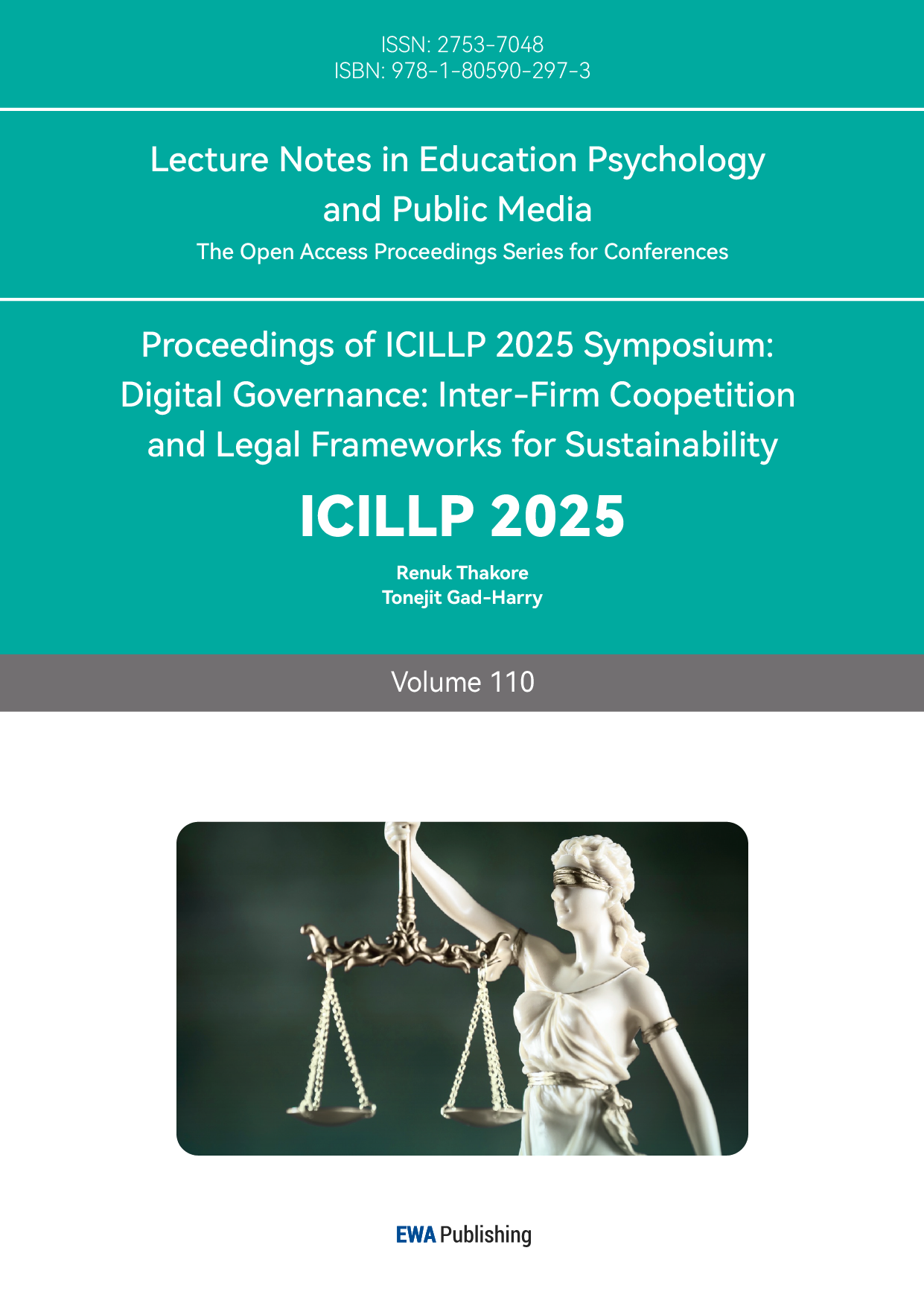References
[1]. Tang, Z. (2024) Concise Private International Law. China University of Political Science and Law Press.
[2]. Chang, J. and Liu, Q. (2023) Review Standards for Recognition of Foreign Insolvency Proceedings: Taking the First Case in Mainland China of Recognizing Foreign Insolvency Proceedings Based on Reciprocity of Applicable Laws as an Example. Application of Statutes (09), 126-138.
[3]. Feng, Z.H. (2023) Research on the Proof of the Principle of Reciprocity in the Recognition and Enforcement of Foreign Judgments. International Journal (02), 131-153+158.
[4]. Li, W. (2022) On the Principle of Reciprocity for the Recognition of Foreign Court Judgments. Nanjing University Law Journal (01), 1-17.
[5]. Liu, Y.J. and Chen, W.S. (2020) Application of the Principle of Reciprocity in the Field of China's Recognition and Enforcement of Foreign Judgments under the Belt and Road Initiative. Journal of Xinjiang University (Philosophy, Humanities & Social Sciences) 48(04), 32-41.
[6]. Ma, M.F. and Cai, S.Y. (2019) The Principle of Reciprocity in China's Recognition and Enforcement of Foreign Judgments: Dilemmas and Solutions. Politics and Law (03), 121-134.
[7]. Kronke, H., Nacimiento, P., Otto, D. and Port, N.C. (2024) Recognition and Enforcement of Foreign Arbitral Awards: A Global Commentary on the New York Convention. Kluwer Law International.
[8]. De Miguel Asensio, P. and Trimble, M. (2021) Recognition and Enforcement. Journal of Intellectual Property, Information Technology and Electronic Commerce Law 12, 74-89.
[9]. Chong, A. (2020) Moving Towards Harmonisation in the Recognition and Enforcement of Foreign Judgment Rules in Asia. Journal of Private International Law 16(1), 31-68.
[10]. Fan, B.Y. (2021) Empirical Research on the Application of the Principle of Reciprocity in China's Recognition and Enforcement of Foreign Judgments. Peking University International Law Review (03), 116-128.
[11]. Brand, R.A. (2020) Jurisdiction and Judgments Recognition at the Hague Conference: Choices Made, Treaties Completed, and the Path Ahead. Netherlands International Law Review 67, 3-17.
[12]. Gardner, M. (2021) Deferring to Foreign Courts. University of Pennsylvania Law Review 169, 2291-2349.
[13]. Van Aaken, A. and Simsek, B. (2021) Rewarding in International Law. American Journal of International Law 115(2), 195-241.
[14]. Bertolini, E. and Dawson, M. (2021) Fundamental Rights as Constraints to and Triggers for Differentiated Integration. Swiss Political Science Review 27(3), 637-653.
[15]. Kahn-Freund, O. (2024) General Problems of Private International Law. Martinus Nijhoff Publishers.
[16]. Tanaka, Y. (2021) The Legal Consequences of Obligations Erga Omnes in International Law. Netherlands International Law Review 68(1), 1-33.



